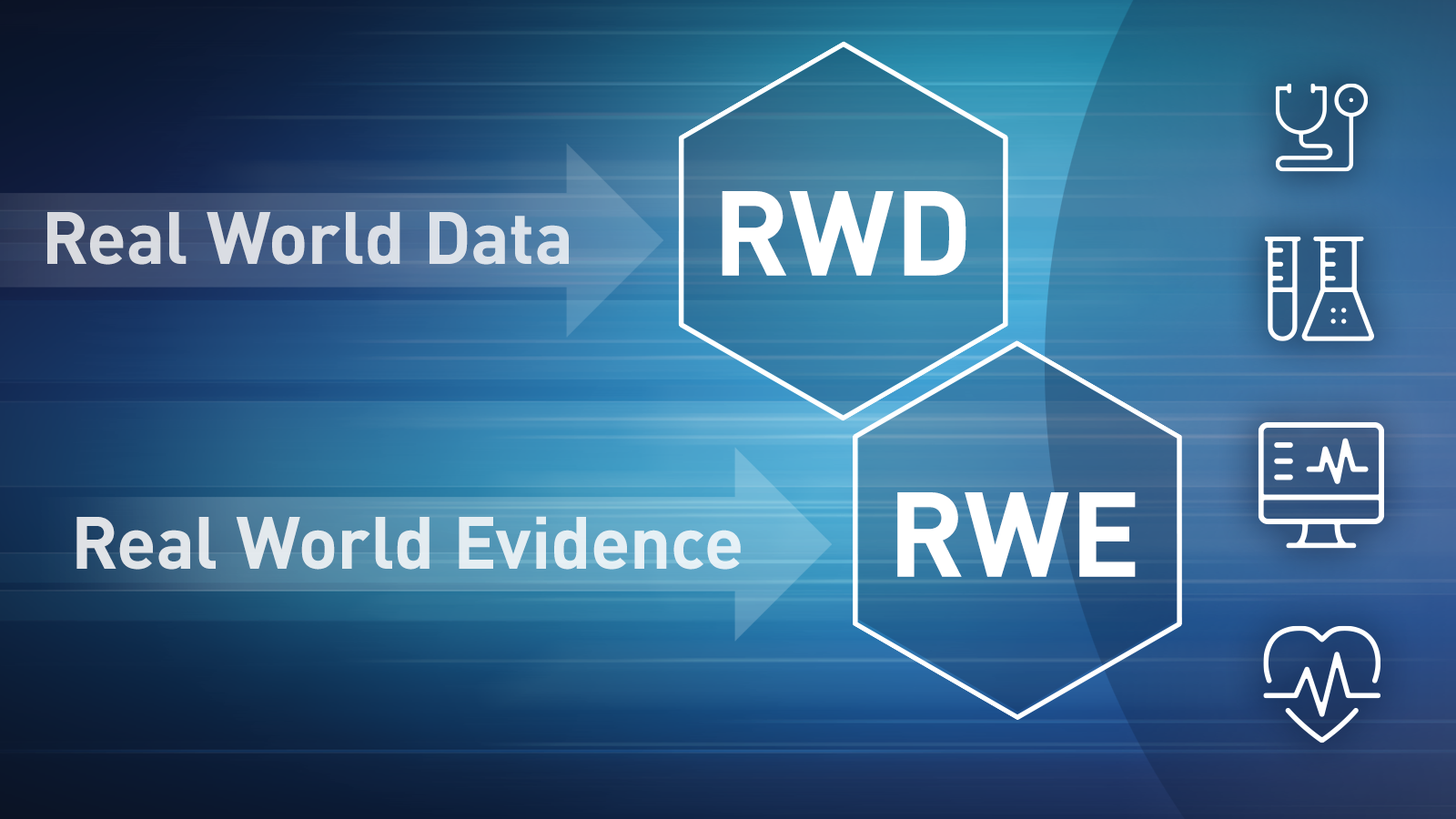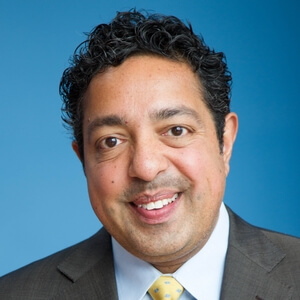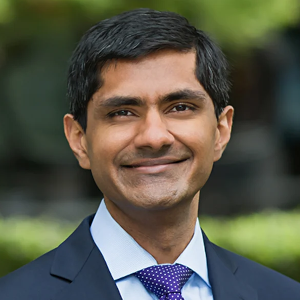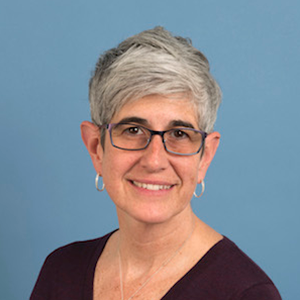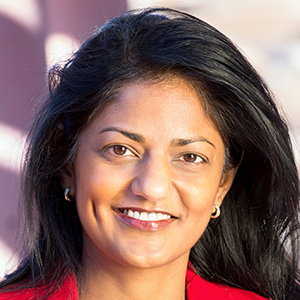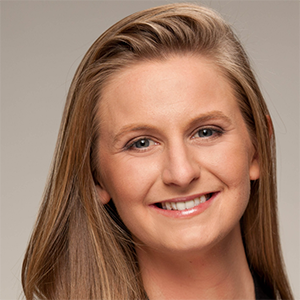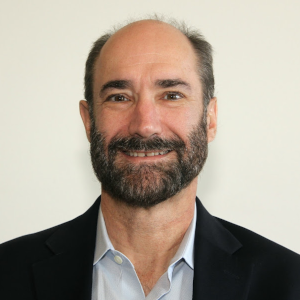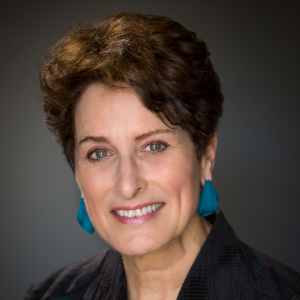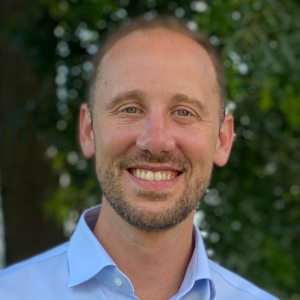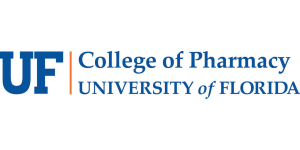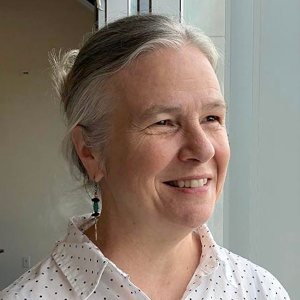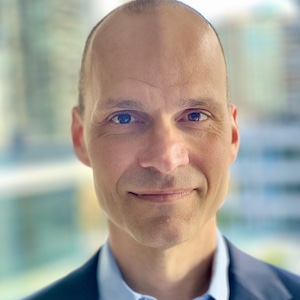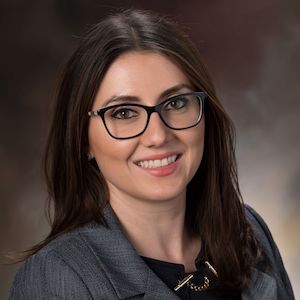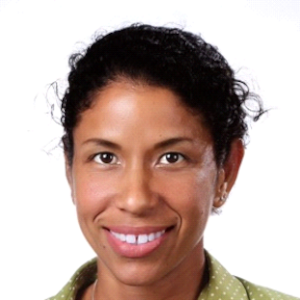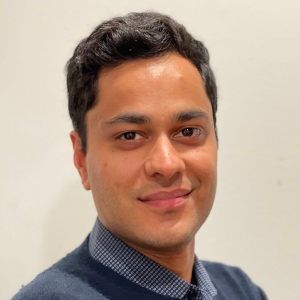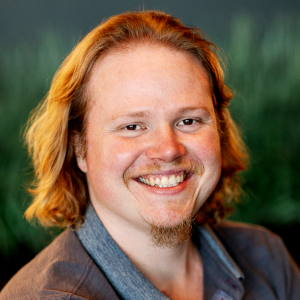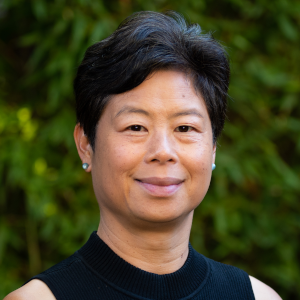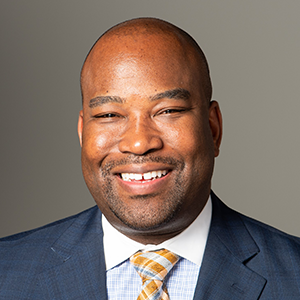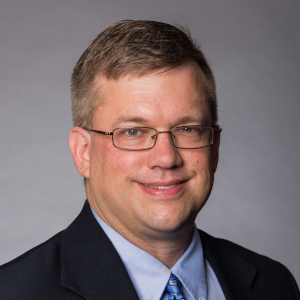Track Chair:
Keith Yamamoto, UCSF
Patient-centric data – Real-World Evidence (RWE) and Real-World Data (RWD) - is becoming instrumental in the drug development process and for health care decisions in general. This data is not only informative for the process from discovery to new indications, clinical trial design, and drug development, it also can be of value to monitor post-marketing drug safety and for decision support in clinical practice. As the data becomes a decision driver, science companies and medical organizations are increasingly focused on leveraging RWD and RWE to not only better understand the patient populations using their drugs and the respective outcomes, but also to accelerate clinical decision support. This session will focus on the various aspects of integrating RWE and RWD to support drug development and clinical decision support
Sessions:
- Realizing the Promise of Precision Medicine Using Real-world Evidence (PANEL)
Session Chair: Atul Butte, UCSF
- Nancy A. Dreyer, IQVIA
- Mark Laabs, RCRF
- Rhonda Cooper-DeHoff, University of Florida
- Chris Boone, Abbvie - Opportunities and Challenges in Using Real World Data (RWD) (PANEL)
Session Chair: Vivek Rudrapatna, UCSF
- Mark Hoffman, Childrens Mercy Hospital
- Ida Sim, UCSF
- Julian Hong, UCSF - How Are Patient Data Revolutionizing Precision Medicine? (PANEL)
Session Chair: Clara Lajonchere, UCLA
- Sharon Terry, Genetic Alliance
- Farid Vij, Invitae
- Latha Palaniappan, Stanford - Government Partnerships: California Initiative to Advance Precision Medicine
Session Chair: Julianne McCall, California Initiative to Advance Precision Medicine
- William Kim, UCSD
- Mike Snyder, Stanford - Leveraging RWE to Create Value (PANEL)
Session Chair: Latha Palaniappan, Stanford
- Brook Schroeder, Illumina
- Suzanne Belinson, Tempus
- Stacey Dacosta Byfield, Optum Genomics - Computational Social Choice Theory's Impact on the Collection and Understanding of RWD
- Ian Terry, LunaDNA - PMWC Showcase
- Chris Williams, MMRF
- Jason Crites, Assurance Health Data
Session Chair Profile
Biography
Atul Butte is the Priscilla Chan and Mark Zuckerberg Distinguished Professor and Director of the Bakar Computational Health Sciences Institute at UCSF, and is also the Chief Data Scientist for the entire University of California Health System, the tenth largest by revenue in the United States, with 20 health professional schools, 6 academic health centers, and 10 hospitals. Dr. Butte is an inventor on 24 patents and has authored over 200 publications, with research repeatedly featured in the New York Times and Wall Street Journal. Dr. Butte was elected into the National Academy of Medicine in 2015, and was recognized by the Obama Administration as a White House Champion of Change in Open Science in 2013. Dr. Butte is also a co-founder of Personalis (IPO, 2019), providing medical genome sequencing services, Carmenta (acquired by Progenity, 2015), discovering diagnostics for pregnancy complications, and NuMedii, finding new uses for drugs using AI.
Session Chair Profile
Biography
Vivek Rudrapatna is a physician and a clinical data scientist. His research group works on developing new methods for analyzing electronic health records and other large datasets to uncover real-world evidence on treatment effects. Vivek is a practicing gastroenterologist and specializes in the treatment of patients with Inflammatory Bowel Disease (IBD). As a clinician, a researcher, and a patient, he is interested in the study of precision medicine as it pertains to this patient population. His group is working on the development of algorithms to predict which patients may be at greater risk for developing the condition and to optimize treatment selection for IBD patients. He hopes that this work may eventually lead to a future where we can prevent IBD altogether. Vivek received his AB from Harvard (2006), his MD/PhD from Mount Sinai (2014), internal medicine residency at Baylor College of Medicine (2016), and gastroenterology fellowship at UCSF (2020).
Session Chair Profile
Biography
Clara Lajonchere, PhD is the Deputy Director for the UCLA Institute for Precision Health, Co-Director of the Clinical Neurogenetic Research Program, and Adjunct Professor of Neurology in the David Geffen School of Medicine at UCLA. Dr. Lajonchere’s background reflects a wide range of professional, clinical, and research activities across central nervous system disorders. She has spent her career on cross-cutting issues in psychiatric genetics and translational medicine. Through the UCLA Institute for Precision Health, Dr. Lajonchere is working collaboratively with thought leaders across the state of California to advance precision medicine and improve outcomes for patients. She currently serves as chair of the California Precision Medicine Advisory Council for the Governor’s Office of Planning and Research.
Session Chair Profile
Biography
Latha Palaniappan, MD, MS is Professor of Medicine and Scientific Director of Precision Genomics and Pharmacogenomics in Primary Care at Stanford. She is the faculty lead for the Stanford Biobank, a population based biobank designed to accelerate genetic and other -omics discovery.
Session Chair Profile
Biography
Dr. McCall oversees cross-sector health policy working groups, research grantmaking, and public interagency efforts, which include serving on Governor Newsom's COVID-19 Testing Task Force and as co-author of the CA Surgeon General's Report. Previously, McCall worked at the California Senate Office of Research and as a Science and Technology Policy Fellow of the California Council on Science and Technology. Prior to state government, she spent sixteen years in neuroscience research labs, including as a Fulbright Fellow. In the community, Dr. McCall teaches Science Policy at UC Davis and UC Riverside, serves on the Editorial Board of the California Journal of Politics and Policy, occasionally directs the International Brain Bee, and is the co-founder of TEDxFulbright, the German Neuroscience Olympiad, and a chapter of the Sustained Dialogue Campus Network for racial justice. She earned a PhD from Heidelberg University, Master's degree from UC San Diego, and Bachelor's degree from Denison University.
Session Chair Profile
Biography
Dr. Snyder received his Ph.D. training at the California Institute of Technology and carried out postdoctoral training at Stanford University. He is a leader in the field of functional genomics and multiomics, and one of the major participants of the ENCODE project. His laboratory was the first to perform a large-scale functional genomics project in any organism, and has developed many technologies in genomics and proteomics. Seminal findings from the Snyder laboratory include the discovery that much more of the human genome is transcribed and contains regulatory information than was previously appreciated (e.g. lncRNAs and TF binding sites), and a high diversity of transcription factor binding occurs both between and within species. He launched the field of personalized medicine by combining different state-of–the-art “omics” technologies to perform the first longitudinal detailed integrative personal omics profile (iPOP) of a person, and his laboratory pioneered the use of wearables technologies (smart watches and continuous glucose monitoring) for precision health.
Speaker Profile
Biography
Her current work is focused on regulatory use of real-world evidence for decision making. She leads IQVIA’s Center for Advanced Evidence Generation, where they develop and implement innovative approaches to minimally interventional and non-interventional studies. She also directs a large community-based registry designed to study COVID-19. A Fellow of both the Drug Information Association (DIA) and the International Society of Pharmacoepidemiology, she is widely known for her thought leadership, particularly in terms of understanding when real-world evidence is fit for purpose. She received DIA’s 2019 Global Inspire Award for Author of the Year for “Advancing a framework for regulatory use of real world evidence: When real is reliable,” and is an elected member of DIA’s Scientific Advisory. She served for many years as a standing consultant to the National Football League Health & Safety Executive Committee, and continues to lead work on injury analytics for NFL and NBA.
Talk
Real-world Evidence Offers a Path to Precision Medicine
Advances in precision medicine will come from capturing and aggregating vast amounts of data about molecular markers, treatments and outcomes that can be used to shape insights about comparative treatment effectiveness and dosing schedules, but how do we know what evidence we can trust and when?
Speaker Profile
Biography
Mark Laabs is an entrepreneur who is a founder, advisor, and/or builder of a wide range of organizations which seek to address critical social and environmental problems on five continents. Mark, an ocular melanoma survivor, founded the RCRF to accelerate innovation in rare cancer research by creating shared infrastructure that drives scale and catalyzes research in these understudied and underserved areas. One of its key initiatives, www.pattern.org, enables patient-powered engagement with cancer research through the donation of fresh tissue vital to create disease models necessary to more fully understand each cancer and to identify potential new treatments. Mark is also focused on enabling precision medicine and trial enrollment opportunities for rare cancer patients regardless of location. Mark serves as Managing Partner of Modern Energy Group, with businesses focused on energy efficiency and resources in the United States and Brazil. Previously, he was COO of Soligent Holdings Inc., helped build and later sell Climate Bridge, a clean energy finance company, and was a consultant at McKinsey & Company. Mark graduated as a Robertson Scholar from the University of North Carolina at Chapel Hill and Duke University with a dual degree in International Studies and the Dynamics of Social Change
Speaker Profile
Biography
Rhonda M. Cooper-DeHoff, Pharm.D., M.S., is a graduate of the University of California, San Francisco School of Pharmacy. Dr. Cooper-DeHoff’s area of research interest include hypertension and cardiovascular disease pharmacogenetics, as well as the factors that influence outcomes with antihypertensive and cardiovascular treatments. She also has interest in the area of antihypertensive drug use and adverse metabolic effects including diabetes, as well as the area of dietary supplements. In total, she has over 200 publications and many have been of high impact, helping to define demographic, clinical, metabolic, metabolomic and genetic and pharmacogenetic factors associated with responses to antihypertensive drugs and cardiovascular outcomes with antihypertensive therapy. She is currently conducting research in the area of ‘big data’ science including the use of EHR data from multiple health systems to conduct real world longitudinal surveillance of important blood pressure control and process metrics, as well as preemptive pharmacogenetics testing in multiple therapeutic areas.
Talk
Tracking BP Control Performance and Process Metrics in 25 US Health Systems
BP control (<140/90 mmHg), calculated using real-world data from 25 health systems across the US, averaged 62%, and there was substantial variation by health system (range 44%-74%). A new class of antihypertensive medication was prescribed in only 12% (range 0.6%-25%) of patient visits where BP was uncontrolled BP. When a medication intensification event occurred, subsequent SBP was 15 ± 20 mm Hg lower on average (range 5-18 mm Hg). Major opportunities exist for improving BP control and reducing disparities.
Speaker Profile
Biography
Sharon F. Terry is President and CEO of Genetic Alliance, an enterprise engaging individuals, families and communities to transform health. Genetic Alliance works to provide programs, products, and tools for ordinary people to take charge of their health and to further biomedical research. As ‘just a Mom’ with a master’s degree in theology, she cofounded PXE International, a research advocacy organization for the genetic condition pseudoxanthoma elasticum (PXE), in response to the diagnosis of PXE in her two children in 1994. She is the author of 150 peer-reviewed papers, of which 30 are clinical PXE studies. Her story is the topic of her TED Talk and TED Radio Hour. She has created people-centered technologies, tools, and resources, and holds patents. She was instrumental in getting the Genetic Information Nondiscrimination Act passed. She has many awards, including from the White House and the National Academies of Science, Engineering and Medicine.
Talk
Not Just Data: People as Drivers
Biomedical research has consistently ignored the people and been centered on their data. It is critical that people be not only at the center, but also driving the processes with other stakeholders. This radical shift is overdue. I will describe the solution Genetic Alliance, in partnership with Luna, has created.
Speaker Profile
Biography
Brock Schroeder is Senior Director of Global Market Access Strategy & HEOR at Illumina, where he leads efforts to generate evidence of clinical and economic utility of current and emerging clinical applications of NGS to support HTA, payer coverage, and patient access to clinical genomic tools. Prior to joining Illumina in 2017, Brock led Medical Affairs at Biotheranostics. Brock’s industry experience includes multiple therapeutic areas, including oncology, rare diseases, and reproductive health. Brock has authored >25 peer-reviewed manuscripts and >50 scientific congress abstracts. He received his BA in Biology from Washington University, and his PhD in Neuroscience from University of Wisconsin-Madison.
Speaker Profile
Biography
Mina Alsaraf Allo currently serves as Vice President, Business Development – Commercial Markets at Tempus Labs. Tempus is making precision medicine a reality by applying AI in healthcare, deriving insights from our expansive library of clinical data and molecular data. There, she focuses on creating partnerships with commercial payers and population health decision makers to drive access and value for the portfolio of assays, including next generation comprehensive genomic profiling and pharmacogenetics testing, and leveraging the combined clinical and molecular data to drive outcomes and economic utility. Her career spans a variety of managed care and biopharmaceutical access, value and health economics and outcomes research (HEOR) related roles, with a passion for ensuring equitable access along the patient journey towards innovative therapeutics and testing options.
Speaker Profile
Biography
Stacey DaCosta Byfield currently leads the Genomics Health Economics and Outcomes Research (HEOR) Team focused on conducting observational research studies using administrative claims, EHR/medical record data and other data sources, including laboratory results data. Stacey joined UnitedHealth Group (UHG) in 2009 in the OptumInsight Life Sciences HEOR group where she started as a Senior Researcher focusing on oncology studies. She later served as VP, Research of the Life Sciences HEOR group before moving to OptumLabs were she led the Data Scientist team and most recently the Oncology Focus Area Research Team. Prior to joining UHG, she worked in the Department of Drug Use Policy and Pharmacoeconomics at the University of Texas M.D. Anderson Cancer Center as a Pharmacoeconomics Research Specialist. In this capacity, her main responsibilities included developing research designs to evaluate clinical, economic and humanistic outcomes of pharmaceutical products and services. She holds a PhD in Tumor Biology from Georgetown University and completed a basic science fellowship at the National Cancer Institute where her work focused on identifying targets of pharmaceutical intervention for metastatic breast cancer. Stacey also received her MPH with a concentration in clinical effectiveness from the Harvard T. H. Chan School of Public Health and has completed the Program in Cancer Outcomes Research Training (PCORT) Fellowship, a jointly sponsored program by the Massachusetts General Hospital and the Dana-Farber Harvard Cancer Center in Boston, Massachusetts.
Speaker Profile
Biography
Matthew Porteus is the Sutardja Clark Professor of Definitive and Curative Medicine in the Department of Pediatrics and Institute of Stem Cell Biology and Regenerative Medicine at Stanford. He is the co-Director for the Stanford Center for Definitive and Curative Medicine (CDCM). His primary research focus is on developing genome editing as an approach to cure disease, particularly those of the blood and immune system (including sickle cell disease) and other organ systems. His goal is to combine his research and clinical interests to develop innovative curative therapies. His dream is to one day develop gene editing so that patients are cured of their disease before they or their parents even knew they had it. He served on the 2017 National Academy Study Committee of Human Genome Editing and currently serves on the Scientific Advisory Board for WADA on Cell and Gene Doping and the NIH NExTRAC advisory committee evaluating the emergence of new technologies.
Speaker Profile
Biography
For almost 20 years, Dr. William Kim has been leveraging the power of machine learning with functional genomics approaches to contribute to a deeper understanding of cellular circuitry underlying cancer initiation, maintenance, and progression. He has helped pioneer several novel computational framework to better functionally characterize cancers to identify appropriate therapeutic strategies towards realizing precision cancer medicine. He is currently the co-leader of a California Initiate to Advance Precision Medicine (CIAPM) Project sponsored by the State of California Office of Governor’s Planning and Research which aims to target Triple-Negative Breast Cancers to help reduce health disparities.
Speaker Profile
Biography
Farid Vij is General Manager for Invitae's Data division where he leads strategy, product and operations for the business. His core focus is building a two-sided platform that connects patients, providers and researchers through patient-consented data to help patients find better care options and advance research through real world evidence generation. Prior to Invitae, Farid was co-founder and COO at Ciitizen, a company focused on providing patients with access to their complete medical records. At Ciitizen, he drove the company's operations and go-to-market strategy, before leading its acquisition by Invitae in September 2021. Before Ciitizen, Farid held various commercial and operational roles at ZL Technologies, a big data company focused on harnessing unstructured information to drive critical privacy decisions for large organizations. Farid holds a BS in Economics from the Wharton School at the University of Pennsylvania. He enjoys angel investments in mission-focused companies and supporting education-focused non-profit organizations.
Speaker Profile
Biography
Focusing on developing participant-focused research methods, surfacing priorities, needs, hierarchies, and categories through the mental models of people directly affected by clinical and diagnostic research. Ian has a long history in Human-centered research and advocacy, diagnosed with a rare disease at 5 years old he has worked his whole career to bring together the shared experience of participants and the proven methods of product development.
Talk
Computational Social Choice Theory's Impact on the Collection and Understanding of Real-World Data
The fields of Computational Social Choice, UX Research, and product development have vastly outpaced the medical field in their ability to collect, categorize, and understand real-world data points to improve the lives of their "users." By implementing these lessons into the clinical landscape we can leap-frog years of systems growth and evolution without having to re-invent the wheel. For RWE to be effective, it must be representative of people's real lives, in their living rooms and around their dining tables, growing at the same pace as real life. How exactly can this be done? Case studies and an explanation of novel methodologies will pave the way.
Speaker Profile
Biography
Dr. Sim is a leader in the policy and technology of large-scale health data sharing for clinical care and research. She is co-founder of Vivli, a global data sharing platform for participant-level clinical trials data and co-founder of Open mHealth, a non-profit organization whose open mobile health data standards are now the IEEE 1752 global standard. She co-developed CommonHealth, the Android equivalent of Apple Health for bringing USCDI EHR data to smartphones, and is integrating digital technologies into primary care at UCSF. Dr. Sim is Co-Director of the new UCSF UC Berkeley Joint Program in Computational Precision Health. She earned her MD and PhD from Stanford University, and is a recipient of the United States Presidential Early Career Award for Scientists and Engineers (PECASE), a Fellow of the American College of Medical Informatics, and a member of the American Society for Clinical Investigation. She is a practicing primary care physician.
Speaker Profile
Biography
Chris Boone, PhD currently serves as the Vice President, Global Head of Health Economics and Outcomes Research at Abbvie. He is also an adjunct assistant professor of health administration at the New York University's Robert F. Wagner Graduate School of Public Service, and an active board member of several influential organizations. Prior to AbbVie, he served in two different roles at Pfizer: (1) the Vice President and Head of Global Medical Epidemiology and Big Data Analysis, and (2) the Vice President and Global Head of Real-World Data and Analytics. Chris earned a B.S. from the University of Tulsa, a M.S. from the University of Texas at Arlington, a PhD from the University of Texas at Dallas, and two executive certificates from the Harvard Kennedy School. He is a Fellow of the American College of Health Executives and a Fellow of the Healthcare Information Management & Systems Society.
Speaker Profile
Biography
Dr. Hoffman is an expert in EHR data at both the source system and aggregate data. He led the design and development of the first commercial molecular diagnostics solution integrated with an EHR. His research focuses on using massive aggregate de-identified EHR data resources from more than 100 non-affiliated organizations to compare "real world" clinical practice with guidelines and other ideals. For example, his team recently demonstrated that A1c tests are frequently ordered for sickle cell patients. They have also demonstrated over-ordering of opioids for young adults evaluated in the ED for headache. He is also an expert in methods to identify and characterize EHR implementation impacts on "real world data".
Talk
Trekking in the Jungle of "Real World Data"
I will describe aspects of working with real world EHR data and will share 3 examples from my research.
Speaker Profile
Biography
Jason Crites is the Founder/CEO of Assurance Health Data (AHD), a health technology company that has created the trusted third-party health data platform and marketplace. After his father's aggressive late-stage prostate cancer and his nephew's rare Leigh's Syndrome diagnosis, Jason became obsessed with solving the problems researchers face in obtaining and sharing data. After 18 years at IBM where he was one of the creators of the federated data model and the global storage solution – closing over $2 Billion in deals and optimizing the data infrastructure of many of the Fortune 500 – he founded AHD with the mission to make health data liquid.
AI and Data Sciences Showcase:
Assurance Health Data
Assurance Health Data is a trusted, third-party clinical data platform and market, enabling data sharing at scale across healthcare providers, researchers, patients, as well as diagnostic and life sciences companies to solve the biggest data problems in healthcare — together.
Enabling Trust for Rare Clinical Quality Data
Real-World Evidence requirements for precision medicine surpass existing data company’s approaches. We will discuss the AHD Data Network and how we enable creating and sharing of the world’s highest-quality, nuanced and difficult-to-obtain datasets and patient samples.






